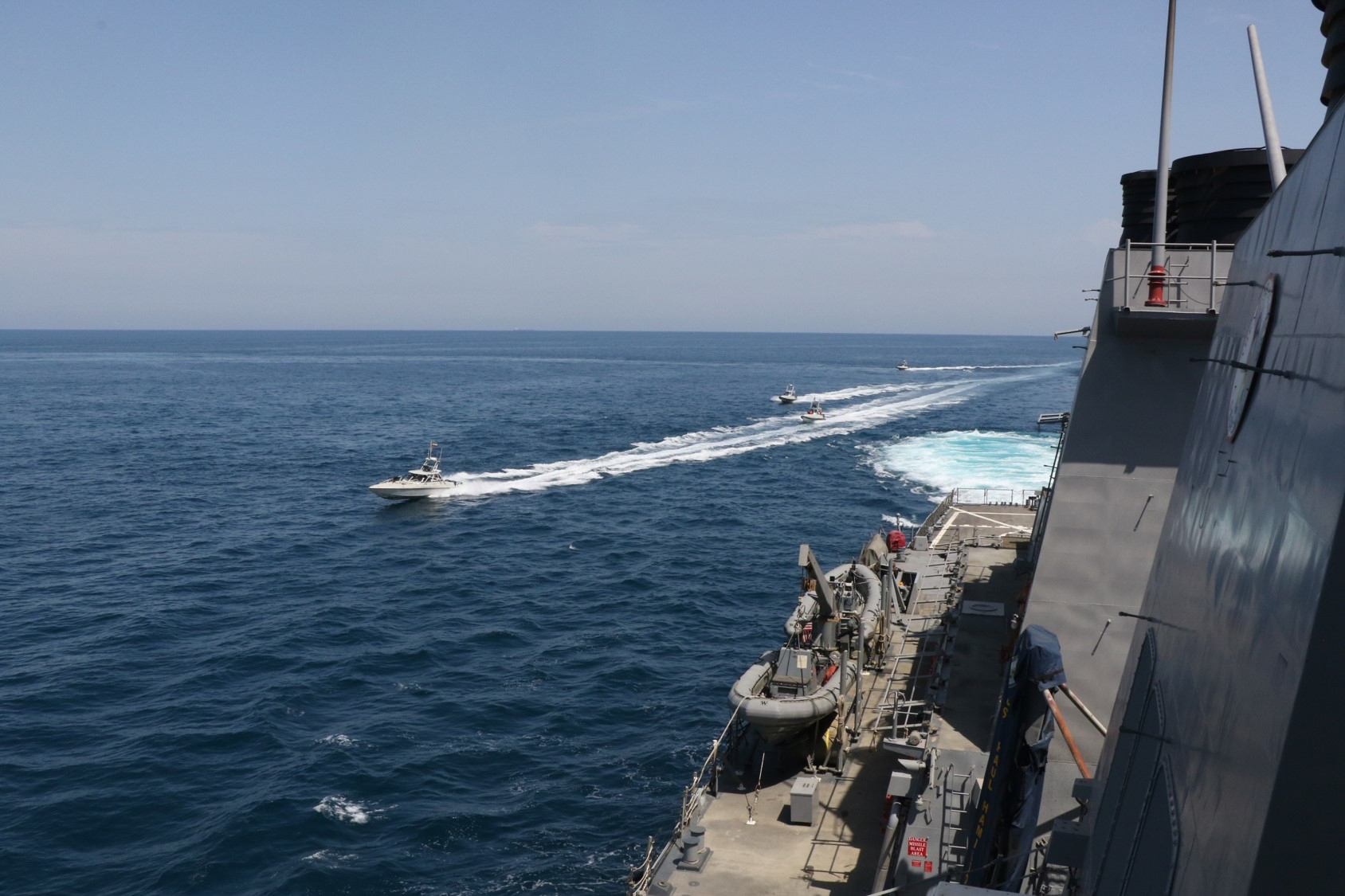
The Navy’s existing policy for dealing with the small Iranian vessels prevalent in the Persian Gulf matches the sentiment of a Wednesday morning Tweet from President Donald Trump, Deputy Secretary of Defense David Norquist and Vice Chairman of the Joint Chiefs of Staff Gen. John Hyten said during a Wednesday media briefing.
“The President issued an important warning to the Iranians. What he was emphasizing is all of our ships retain the right of self-defense, and people need to be very careful in their interactions to understand the inherent right of self-defense,” Norquist said.
On Wednesday, Trump tweeted, “I have instructed the United States Navy to shoot down and destroy any and all Iranian gunboats if they harass our ships at sea.”
The tweet follows an incident last week in the Persian Gulf, where 11 small Iranian Islamic Revolutionary Guard Corps Navy (IRGCN) vessels repeatedly harassed a formation of U.S. Navy and Coast Guard ships. The IRGCN vessels crossed in front of the U.S. ships, in a few instances coming within 50 yards of USS Lewis B. Puller (ESB-3) and within 10 yards of the bow of USCGC Maui (WPB-1304), according to the Navy.
“I like that the President warned an adversary. That’s what he’s doing. He’s providing a warning. If you want to go down that path, we will come and we will come large, so don’t go down that path. That is what he is saying. He’s saying it in clear, uncertain terms. We understand that direction, and every commander that is deployed has the ability to execute that,” Hyten said.
Following the incident, the U.S. Navy released a statement, saying “the IRGCN’s dangerous and provocative actions increased the risk of miscalculation and collision, were not in accordance with the internationally recognized Convention on the International Regulations for Preventing Collisions at Sea (COLREGS) ‘rules of the road’ or internationally recognized maritime customs, and were not in accordance with the obligation under international law to act with due regard for the safety of other vessels in the area.”
I have instructed the United States Navy to shoot down and destroy any and all Iranian gunboats if they harass our ships at sea.
— Donald J. Trump (@realDonaldTrump) April 22, 2020
Hyten demurred from answering whether last week’s action by the Iranians was an example of the type of activity that would merit the future use of lethal force.
“I would have to be the captain of the ship to make that determination,” Hyten said. “It depends on the situation of what the captain sees. It’s a hypothetical question and I don’t want to go down that.”
However, Hyten said every captain at sea understands that the U.S. military offers specific guidance about appropriate responses to any fast boats moving into threatening positions.
“I go back to what the President says. It sends a great message to Iran. That’s perfect. We know how to translate that into rules of engagement,” Hyten said. “We don’t talk about rules of engagement in public, but they’re based on the inherent right to self-defense. They’re based on hostile intent and hostile act. That’s all we need in order to take the right action.”





